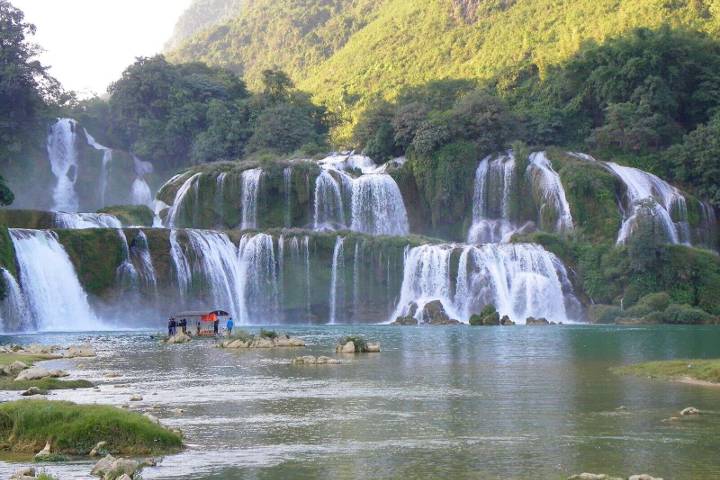As part of the 8th International Conference of the Asia-Pacific UNESCO Global Geoparks Network (APGN) held in Cao Bằng from September 5 to 17, 2024, a ceremony was held to mark the 20th anniversary of the UNESCO Global Geoparks Network (GGN). The conference also re-evaluated geoparks that have already been recognized, while promoting the future activities of these geoparks.
The 20-Year Journey of the UNESCO Global Geoparks Network
On September 11, during the conference, the 20th anniversary of the founding of the UNESCO Global Geoparks Network was celebrated. The idea of conserving geological heritage (GH) started with a declaration in Digne, calling for the protection of Earth's memories and landmarks. This idea laid the groundwork for the formation of the first UNESCO Global Geoparks. It was first recognized as a major theme at the 30th International Geological Congress (IGC) in Beijing, with the understanding that GH is a non-renewable and invaluable resource that must be preserved and used wisely.
Based on this initiative, the UNESCO General Assembly proposed creating a global network of geological heritage to protect these sites worldwide, enhance public knowledge of geology, and raise awareness of the importance of Earth sciences. This network also aims to respect and preserve the cultural values and indigenous knowledge of local communities, creating new employment opportunities and promoting sustainable economic development for these regions.
At the anniversary celebration, Lidia Brito, Assistant Director-General for Natural Sciences at UNESCO, emphasized the importance of the GGN’s 20-year journey. The network has rallied countries across continents to protect global geological heritage and establish a strong link between the Earth, its landscapes, and natural resources, and human society and biodiversity.
Looking to the future, with the growing threat of global climate change, which poses risks to human survival and wellbeing, the GGN continues its mission. It focuses on developing UNESCO Global Geoparks as part of broader efforts for sustainable development, climate change mitigation, disaster risk reduction, and environmental protection.
 Non Nuoc Cao Bang Geopark (Travel Magazine)
Non Nuoc Cao Bang Geopark (Travel Magazine)
Reassessment of 228 Global Geoparks
Earlier, the UNESCO Global Geoparks Council met under the chairmanship of Setsuya Nakada, Chair of the UNESCO Global Geoparks Council.
At the meeting, the Council re-evaluated 228 geoparks across 49 countries, including 213 existing UNESCO Global Geoparks and 15 new candidates. Vietnam’s Lạng Sơn Geopark was unanimously approved by the Council members, and the application will soon be submitted to UNESCO for consideration of its recognition as a UNESCO Global Geopark.
The reassessment process for existing geoparks focused on their implementation of recommendations from the UNESCO Global Geoparks Network, their efforts in conservation and sustainable tourism development, and the creation of livelihoods for local and indigenous populations. The Council also considered the level of engagement of the geoparks in participating in GGN programs and activities, promoting their work, and sharing successful models with other members of the network.
For the 15 new geopark candidates, the Council urged them to actively pursue their outlined objectives and meet the criteria submitted to UNESCO for review.